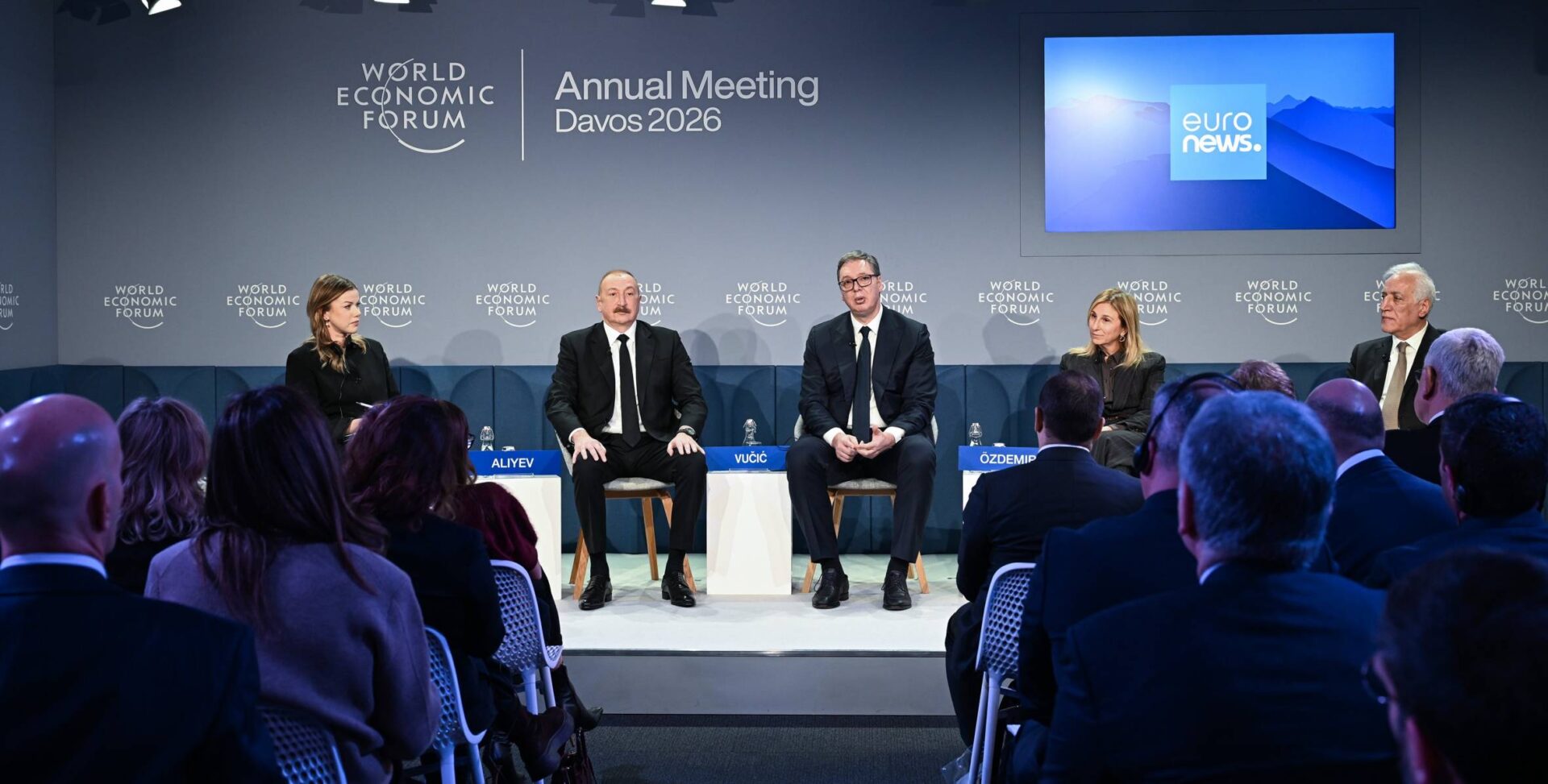TURKEY SPEAKS VOLUMES WITH A MUTED RESPONSE TO EU SNUB
TURKEY SPEAKS VOLUMES WITH A MUTED RESPONSE TO EU SNUB
Turkey’s muted response to the EU’s refusal to include an explicit reference to the country’s accession in its recent statement on enlargement is yet another indication of the waning enthusiasm in Turkey for what was once the country’s overriding foreign policy goal.
At the conclusion of its summit in Brussels on December 14, the EU replaced a reference to “accession conferences” later this month with Croatia and Turkey with one to “inter-governmental conferences.” The change in wording was the result of pressure from French President Nicolas Sarkozy, an outspoken opponent of Turkish accession who has repeatedly argued that, at the very least, the EU should not commit itself to eventual Turkish membership.
In the past, such a snub would have triggered a storm of outrage in Turkey, in which statements by politicians would have been backed up by banner headlines on the front pages of the Turkish dailies and batteries of political commentators fulminating on television talk shows. Yet this time the reaction was muted, characterized at best by weary resignation but more commonly by simple indifference.
“Accession is full of obstacles and there are some in the EU who would like to see Turkey abandon its efforts. But our process leaves no space for impulsive behavior and emotional reactions,” said Turkish Foreign Minister Ali Babacan (NTV, December 17).
Prime Minister Recep Tayyip Erdogan announced: “We will continue our EU path with determination” (Hurriyet, Sabah, December 15).
Yet, in truth, over the last two years, there has been little sign of any determination on the part of the Turkish government. One of the problems has undoubtedly been the continuing standoff over Cyprus. Despite an explicit commitment to do so in summer 2005, Ankara still refuses to open its ports and airports to ships and planes from the Greek Cypriot Republic of Cyprus, which has been an EU member since May 2004. In December 2006, the EU suspended talks on eight of the 35 chapters of the accession process pending Turkey fulfilling its commitments.
There is little doubt that the impasse over Cyprus has been a godsend for opponents of Turkish membership within the EU. Yet neither does it explain the continuing failure of the Justice and Development Party (AKP) government to implement any of the many reforms that are needed if Turkey is ever to meet the criteria for EU accession. Most international and domestic attention has focused on the lack of progress in controversial areas such as freedom of expression and minority rights. Yet neither has the AKP made a concerted attempt to introduce reforms in less controversial, more technical areas.
Perhaps more revealing than the muted response of Turkish politicians to last week’s rewording of the EU statement was the reaction – or lack of it – in the Turkish media. Although a few columnists lambasted the EU in general and France in particular, most simply wrote about topics unrelated to the EU. Perhaps most surprising was the suggestion by Murat Yetkin, one of Turkey’s leading liberal commentators, in the daily Radikal. Although Yetkin remains committed to Turkey eventually joining the EU, he suggested that perhaps the AKP government could call a timeout in its EU process and give opponents of Turkish accession within the EU the chance to consider whether they really wanted a future without Turkey (Radikal, December 15).
But one of the problems is that many in Turkey believe that the EU has already made up its mind and that religious and racial prejudices will prevent it from ever allowing the country to join. There is little doubt that despair at Turkey ever joining the EU has been one of the main reasons for the recent dramatic decline in public support inside Turkey for accession. Opinion polls conducted in 2003 and 2004 suggested around 70% of Turks favored accession. Polls conducted earlier this year put the figure at well under 50%. But, such is the lack of interest, that even opinion polls in Turkey on EU accession are now rare.
However, fears of Turkey never being allowed to join probably do not fully explain the decline in public support. Just as the idea of Turkish accession has always been more attractive than the reality for many Europeans, Turks, too, have always tended to focus on the benefits rather the costs of membership. For many Turks, EU accession has always been more about the self-esteem of being accepted into what they have long regarded as an elite club of nations than compliance with EU rules and regulations.
Several of the columnists who attacked the EU for the wording of its statement of December 15 went on to complain about the way in which the EU was always trying to interfere in Turkey’s internal affairs and eroding Turkish sovereignty by dictating laws. Yet, in reality, this is precisely the price that members pay for accession.
(Hurriyet, Vatan, Sabah, Yeni Safak, Radikal, Star, Aksam, Zaman, Vatan, December 15-16)


